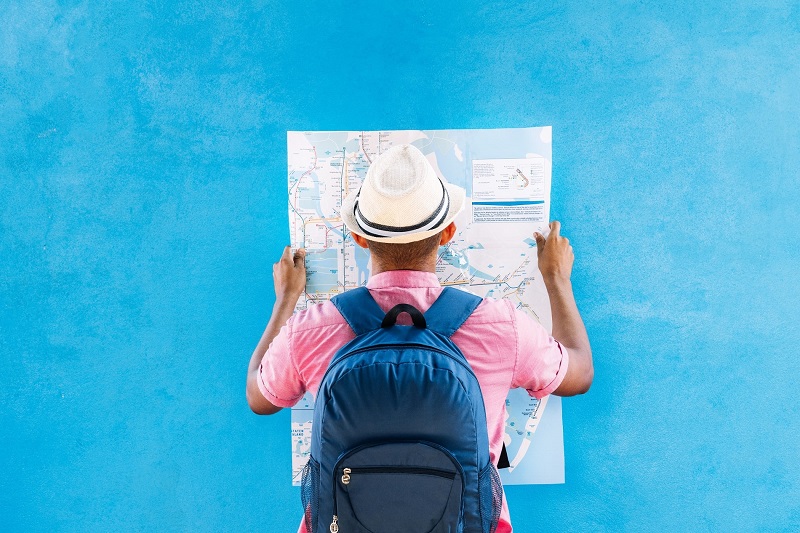Jetting off to a tropical paradise sounds like a dream, but the reality of jet lag can quickly turn that dream into a groggy nightmare. I’ve been there—wide awake at 3 a.m., staring at the ceiling, wondering why I can’t just enjoy the beach like everyone else. Adjusting to a new time zone, especially in tropical climates, takes a bit of strategy and a whole lot of patience.
Understanding Jet Lag
Jet lag, also called desynchronosis, occurs when your internal body clock, the circadian rhythm, is disrupted due to rapid travel across multiple time zones. This condition manifests through various symptoms that include fatigue, insomnia, and decreased cognitive function. When I traveled to a tropical destination, experiencing jet lag was inevitable, and adjusting my body’s clock took some strategic steps.
Biological Mechanics of Jet Lag
Our bodies run on an approximately 24-hour cycle governed by internal circadian rhythms. These rhythms are influenced by external cues like light and darkness. When these cues change drastically, as in the case of crossing several time zones, our internal clock struggles to sync with the new environment. For instance, arriving in a tropical location means dealing with intense sunlight at times your body might consider nighttime.
Common Symptoms
Jet lag symptoms often include insomnia, fatigue, difficulty concentrating, and mood swings. Sleep disturbances make it hard to fall asleep at your destination’s local nighttime, which can compromise your daytime activities. I remember not being able to fully immerse myself in vacation activities because I felt exhausted and mentally foggy.
Factors Influencing Jet Lag Severity
Several factors determine how severely jet lag affects someone. The number of time zones crossed plays a significant role; traveling eastward typically causes more severe symptoms than traveling westward. The abrupt change in daylight exposure also hinders quick adaptation. For example, a trip from New York to Bali involves crossing 12 time zones, thus significantly disrupting one’s internal clock.
Strategic Adaptation
Handling jet lag effectively requires a combination of pre-travel and post-arrival strategies. Before traveling, I gradually adjusted my bedtime to match the destination time zone. Upon arrival, exposing myself to natural sunlight helped reset my circadian rhythm. For instance, taking a morning walk on the tropical beaches aligned my body with the local day-night cycle.
Health Impact
Ignoring jet lag can detrimentally affect one’s health. Persistent sleep disruption leads to a weakened immune system, making travelers more susceptible to illnesses. Cognitive impairments can result in poor decision-making, impacting both personal and professional engagements during the trip. Therefore, addressing jet lag isn’t just about comfort; it’s about maintaining overall well-being.
- Gradual Time Adjustment: Shift sleep schedules a few days before travel.
- Sunlight Exposure: Spend time in natural light upon arrival.
- Hydration: Drink plenty of water to stay hydrated.
- Avoid Alcohol and Caffeine: These can disrupt sleep patterns.
By understanding jet lag and implementing these strategies, adjusting to tropical time zones becomes manageable. This proactive approach lets you enjoy your tropical vacation without the crippling effects of jet lag.
Effects of Jet Lag on the Body
Jet lag significantly affects the body, manifesting in both physical and mental symptoms. Here’s how it can impact various aspects of your wellbeing:
Physical Symptoms
Physical symptoms of jet lag can be quite distressing. Fatigue is the most common symptom, making everyday activities feel exhausting. Sleep disturbances, like insomnia or waking up too early, often follow. Digestive issues can occur as well. For example, I’ve noticed changes in appetite and sometimes experience stomach discomfort. Muscle soreness and headaches are also frequent complaints. When I traveled across six time zones, I found myself dealing with these issues for days. It’s clear that jet lag disrupts the body’s usual processes, leading to a variety of physical ailments.
Mental and Emotional Impact
Jet lag impacts mental and emotional health too. Cognitive functions, for instance, often suffer. I’ve experienced memory lapses and difficulty concentrating. Mood swings and irritability can arise due to disrupted sleep. During my last trip, I felt unusually anxious and struggled to enjoy myself. Decision-making abilities might also decline. For example, under jet lag, I make choices I wouldn’t normally make. These mental and emotional effects can be just as debilitating as the physical ones, affecting your overall well-being during travel.
By being aware of these effects, travelers can better prepare and adapt, ensuring a more enjoyable experience despite the challenges of changing time zones.
Strategies for Handling Jet Lag
Overcoming jet lag involves strategic planning and adopting effective techniques during your travel. Here, I’ll share practical tips to help adjust to tropical time zones smoothly.
Pre-Travel Preparations
Preparing for jet lag starts before the journey. Gradually adjust your sleep schedule a few days before departure. If traveling east, go to bed and wake up an hour earlier each day. For westward flights, move your schedule an hour later.
Exposure to natural light helps reset your internal clock. Spend time outside, even before your trip. Light exposure can ease the transition to the new time zone. Avoid heavy meals and alcohol before and during flights. They can disrupt digestion and sleep patterns, making it harder to adjust.
Pack essentials like earplugs, sleep masks, and comfortable clothing for better in-flight rest. Staying hydrated is crucial, so bring a reusable water bottle. Aim to drink water regularly during your journey.
In-Flight Tips
During the flight, prioritize sleep and hydration. Adjust your watch to the destination’s time zone as soon as you board. It mentally prepares you for the time difference. Try to sleep if it’s nighttime at your destination. Use earplugs and an eye mask to block out noise and light. Comfortable attire supports better rest.
Avoid caffeine and alcohol during the flight. They can dehydrate and disrupt your sleep. Water and herbal teas are better choices. Move around the cabin occasionally. It keeps blood flowing, reducing the risk of deep vein thrombosis and muscle stiffness.
Engage in light stretching exercises in your seat. Gentle stretching can improve circulation and reduce potential discomfort from long periods of immobility.
Post-Arrival Techniques
Upon arrival, immediately adopt the local schedule. Stay awake until the local bedtime, even if you’re tired. It accelerates the adaptation process. Spend time outdoors to benefit from natural sunlight exposure. It helps reset your internal clock faster. Melatonin supplements can also aid sleep adjustments, but consult a healthcare provider before using them.
Stay hydrated, as dehydration exacerbates jet lag symptoms. Drink plenty of water and avoid alcoholic and caffeinated beverages. Eat small, frequent meals to maintain energy levels. Heavy meals might hamper digestion and sleep quality.
Engage in light exercise to boost your mood and energy. A short walk or mild stretching can significantly help. Using these strategies, you’ll find it easier to adjust and enjoy your tropical destination.
Adjusting to Tropical Time Zones
Adapting to a tropical time zone after a long flight requires proactive steps. Employing specific strategies can help alleviate the impact of jet lag and make the transition smoother.
Importance of Daylight Exposure
Exposure to natural light plays a crucial role in resetting the body’s internal clock. Daylight serves as a powerful cue for regulating circadian rhythms. Upon arriving in a tropical destination, I spend as much time outdoors as possible. Morning light is particularly helpful for adjusting to a new time zone. It signals my body that it’s time to be awake and alert. Avoiding sunglasses during these morning outings enhances the benefits. Conversely, if I need to shift my internal clock to a later time, afternoon sunlight exposure becomes key. If natural light isn’t available due to weather, using a light therapy box designed to mimic sunlight can be an effective substitute.
Managing Sleep Patterns
Adjusting sleep patterns before and during travel helps mitigate jet lag. I start by shifting my bedtime and wake-up time closer to the destination’s time zone a few days before departure. During the flight, I set my watch to the destination’s time and try to sleep according to that schedule. Using earplugs and an eye mask facilitates sleep in flight. Once I arrive, I stay awake until the local bedtime. Naps can disrupt this process, so I limit them to short power naps if absolutely necessary. Creating a conducive sleep environment by keeping my room cool and dark aids in falling asleep easily.
Dietary Adjustments
Diet significantly impacts my ability to adjust to new time zones. I avoid heavy meals and caffeine close to bedtime to prevent sleep disturbances. Instead, I opt for light meals and stay hydrated by drinking water regularly. High-protein breakfasts help jumpstart my metabolism and signal it’s time to wake up. Meanwhile, foods rich in magnesium, like leafy greens and nuts, promote relaxation and better sleep quality. If I indulge in local cuisine, I do so earlier in the day to prevent digestive issues at night. These dietary adjustments make a noticeable difference in how quickly I acclimate to the tropical climate and new schedule.
Practical Tips for Frequent Travelers
Navigating jet lag while hopping between tropical time zones is challenging. Frequent travelers can benefit from practical strategies to ease this transition and increase their overall well-being.
Maintaining a Healthy Routine
Sticking to a consistent routine helps manage jet lag. Sleep and meal timings should remain consistent to aid adjustment. Before traveling, I adjust my sleep schedule gradually to match the destination’s time zone. For instance, if heading to Thailand, I’d start shifting my bedtime an hour earlier each night.
Regular exercise before and during travel enhances physical health. I always pack workout gear and prioritize morning jogs or hotel gym visits. Exercising outside in the mornings offers the added benefit of exposure to natural light.
Eating healthy plays a crucial role. I avoid heavy meals right before bed and opt for lighter options like salads or soups. Additionally, hydration becomes paramount. Drinking at least 8-10 glasses of water daily combats the dehydrating effects of long flights. I steer clear of alcohol and caffeine as they disrupt sleep patterns.
Use of Technology and Apps
Technology offers tools to combat jet lag. I rely on sleep and health apps to track and adjust my sleep cycle. Apps like TimeShifter provide personalized jet lag plans, recommending when to sleep, take bright light exposure, and avoid caffeine. I’ve found their adaptive approach to be incredibly effective.
Wearable devices aid in this transition. Smartwatches monitor my sleep and physical activity, offering reminders to move or hydrate. For instance, my smartwatch’s “relax” feature helps me practice mindfulness and reduce travel-induced stress.
In-flight entertainment systems also assist in adjusting to a new time zone. I set the screen to display the destination’s time, helping mentally prepare for the new schedule. To ease into sleep, noise-canceling headphones and sleep mask apps simulate dark, quiet environments, promoting restful slumber.
By maintaining a healthy routine and leveraging technology, frequent travelers can effectively manage jet lag and enjoy their tropical destinations to the fullest.
Conclusion
Traveling to tropical time zones can be a fantastic experience, but jet lag can put a damper on your plans. By taking proactive steps like adjusting your sleep schedule before you leave, staying hydrated, and getting plenty of natural light once you arrive, you can minimize the impact of jet lag.
Remember to be patient with yourself and give your body time to adjust. With a bit of planning and some helpful strategies, you can ensure that jet lag doesn’t ruin your tropical getaway. Happy travels!










0 Comments